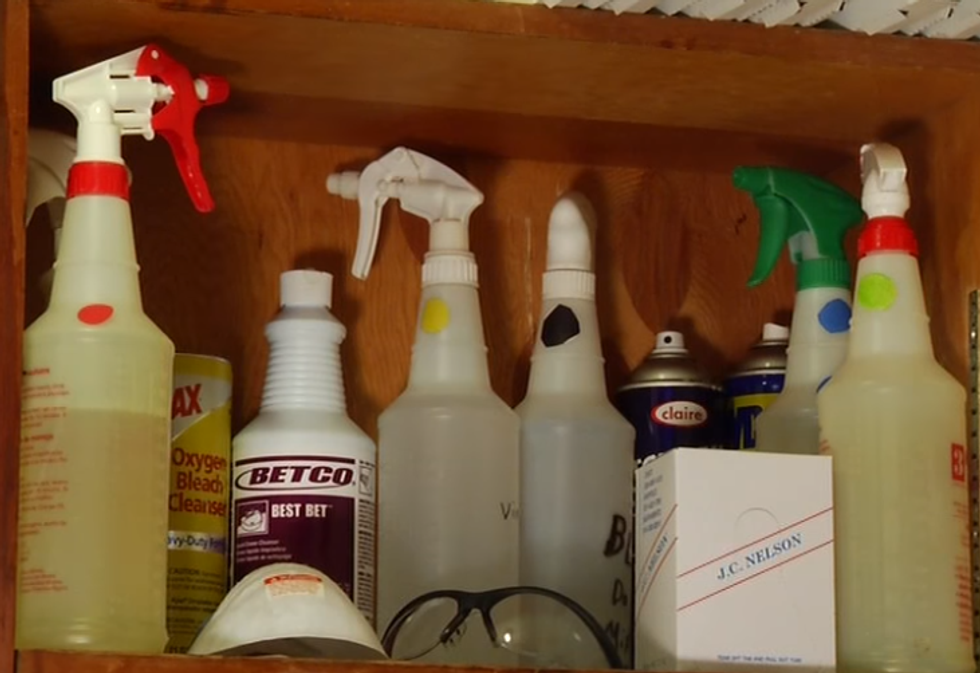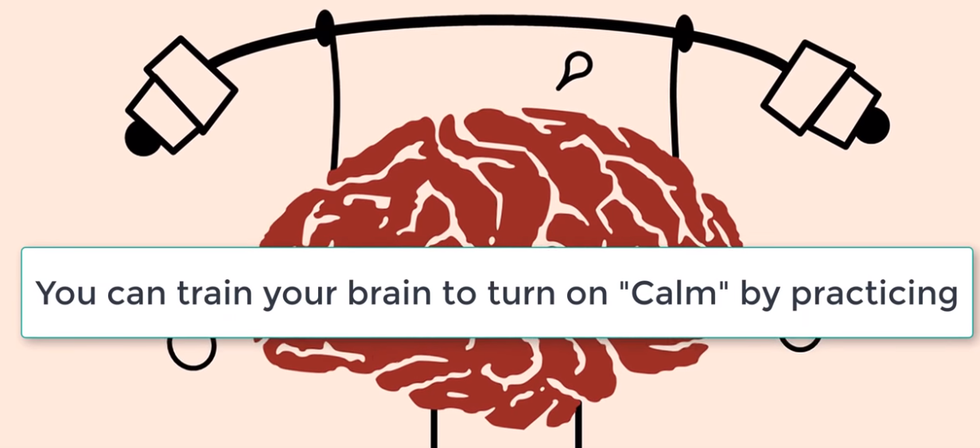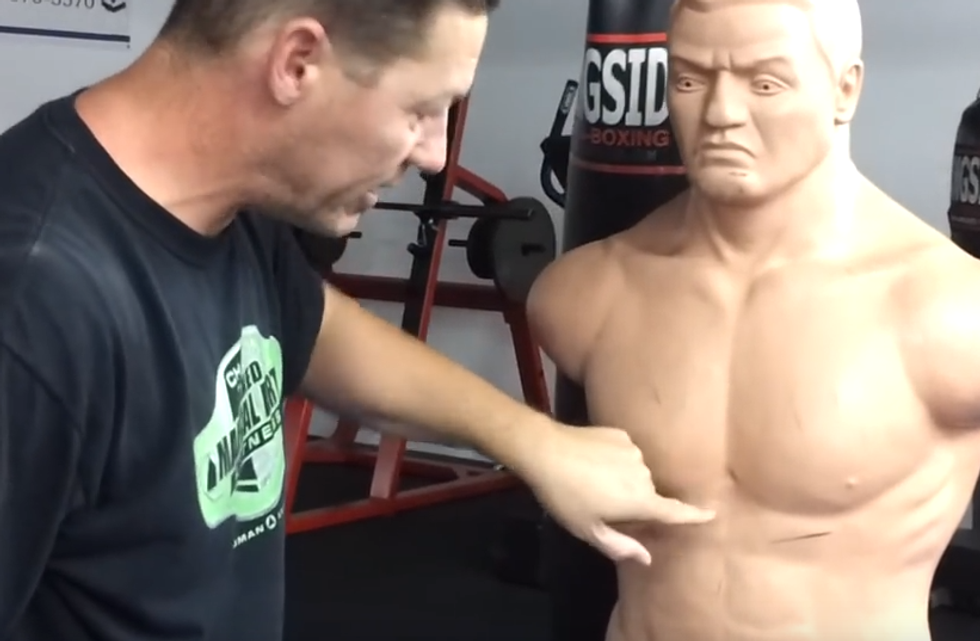If Someone Tells You They've Been Sexually Assaulted, Here Are Some Steps To Helping
When worse comes to worst is not the right time to to prepare yourself to help a victim of sexual violence.
Sexual assault is the subject that everyone would prefer to skirt entirely.
The violence of the crime, the commonality of it in today's society and the ramifications it causes all make rape and sexual assault not so easy to talk or even think about. It's easy to put distance in between your mind and this reality, telling yourself "that's the kind of thing that only happens to other people."
1. Start By Believing
I cannot stress enough how important this step is.
I learned in a sexual assault survivor support group while recovering from my own rapes that if the first person a victim confides the assaults in does not believe them, there's only a 1 percent chance that they'll report the assault to authorities.
Besides that, it's important to consider all they may be risking by confiding the assault in anyone. Most rapes and sexual assaults are committed by someone the victim knows, so survivors could be outing the true nature of their romantic relationships, might lose their jobs or even risk sustaining more physical harm from the attacker.
This is why it is so important to believe right away. Many think that to believe immediately is to choose to overlook facts when actually only between 2 and 8 percent of reported rapes are false.
Even if they tell you they were abducted and abused by a flock of alien geese with the bodies of Danny Devito, confiding trauma is a huge step for survivors, so validation is the easiest way to show your support.
2. Actions to Avoid
After an attack, often times people might feel violated, disempowered and victimized.
Because of this, tone is everything. Instead of insisting to take them somewhere—be it a crisis center, hospital, police station or even out for a beer—it's better to explain that these are your recommendations and why instead of issuing a command. Phrasing like "You need to," or "I'm going to take you," further take the power away from the victim instead of allowing them some measure of control when they've just been forced into a situation without any.
Equally important is to give them as much physical space as they need. Even if it might be coming from a place of love and support, insisting that the person touch you with a hug, hand-hold or even shoulder pat after experiencing trauma related to their body might do more harm than good. Even if you know the person and that's typically their go-to in terms of typical lines of support, check first before making any moves.
In the event of a rape, evidence can still be collected from a rape kit up to 72 hours after the assault has occurred, and sometimes even past that. With that said, if at all possible, you should encourage the victim not to bathe or clean anything related to the assault before going to the hospital.
While a trip to the hospital is neither typical nor always needed in terms of the physical health of the victim, it is better to be safe than sorry and try to avoid disrupting DNA evidence in case they make the decision to report the crime later down the line. However, as mentioned above, this decision should never be made for them, and it is typical for victims to want to bathe immediately after being subjugated to sexual violence. If the victim has already bathed, advising a trip to the hospital is still a good move.
Finally, if possible, clothing and other articles that could be considered evidence should be carefully stored in a paper bag if the victim is OK with it, as these too can be examined for evidence if they choose to press charges.
3. What—And What Not—To Say
To believe is one thing, but it's another to know just what that sounds like.
The key element in communicating with survivors is to start in empathy and not to stray from that for whatever reason. Below are some examples of phrases and questions which are commonly used in conversations with survivors but can inadvertently make the situation that much worse.
Blaming and Shaming:
"Why were you there in the first place?"
"I thought you were smarter than that."
or
"I told you they were no good and to be careful."
Minimizing the Event:
"I've heard that can happen. You should be fine."
"That doesn't sound that bad."
"It'll all be OK."
"At least they didn't..."
or
"It could've been worse."
General No-No's That Are Pretty Well Known, But Can't Hurt To Be Reiterated:
"What were you wearing?"
"How much did you have to drink?"
"You didn't try to fight back?"
"Had you hooked up before?"
All of these, even if meant well, take the blame off of the perpetrator and onto the victim. Despite the factors the victim may or may not have contributed to setting the scene, it is the fault of the perpetrator and theirs alone for committing the act. No one but yourself can be held responsible for your own actions, as no one has ever sexually assaulted themselves, nor has anyone ever been "asking for it" (What does that even mean? "Can I get a little more trauma and violation of personal sovereignty? I need a little more of that in my life. Please and thank you!") The only factor that matters is the attacker's decision to commit a crime.
Instead of blaming, minimizing or trying to contextualize what happened, your first and foremost concern should be their physical well being (it should go without saying that there would be a mental and emotional effect.) The most straight-forward way to address this is with a simple, "Are you hurt?" or "Do you need to see a doctor? I can drive you or come along if need be."
After this has been assessed, here are some phrases most survivors (myself during my recovery, certainly) would probably appreciate hearing:
"I'm so sorry that happened to you."
Disclaimer: This should be used with discretion. While this reaction was heaven-sent during my recovery, if the main reaction you're seeing from the victim is anger, it could incite a stronger one, now aimed at you.
"How can I help you?" or "What do you need from me?"
"I'm here to talk if you need it.", "Do you want me to sit/stay here with you for a bit?" or "Let me know if you need a minute/some space."
Then, once they're ready: "If you want, we can talk about your options."
4. Know What's Available
The best way to help someone after they've been assaulted is to know the resources available to them as the victim and yourself as an ally.
As mentioned before, the best first-step after hearing the victim out is to go to the hospital. It's important to note that if a person goes to the hospital and receives treatment for rape or sexual assault, there is no mandate that they must then report the assault to authorities. Even if a rape kit is performed, that can be kept as evidence if the victim chooses to report at a later date or not be used at all.
The other benefit of going to the hospital is that the medical professionals there will have a more comprehensive knowledge of the area's therapy, crisis center and counseling options which can be utilized to address the victim's mental health.
If someone does choose to report, there are a few avenues they may take. However, college students have the majority of options available to them.
For one, if both the victim and the accused are students at any state university, reporting can be pursued through the Title IX department. Even if the parties go to different universities, the schools' departments can still work together to pursue justice. Every state school has one, and it's their jobs to address and investigate sexual misconduct on college campuses. Through this, the victim may choose to pursue disciplinary action or else simply report the attack to attain any protections that may be needed. Moreover, if they choose to report but opt out of an official investigation, this report can be considered in other accusations of sexual misconduct levied against the perpetrator in the future which betters their chances of being found guilty.
University Police departments are similar in that a victim may report and pursue charges or else report merely for their own safety. However, the actions taken by University Police differ from campus-to-campus, so a comprehensive understanding of their policies should be accessed through the school's official website.
Finally, anyone, whether student or otherwise, can report to a standard police department in the area the incident took place. As with the two above options, a victim has the choice between the two types of reporting. However, criminal investigations differ from those of student misconduct, so victims and allies are encouraged to consult a Victim's Advocate for more information. These individuals are trained in offering information, dealing with the specific needs of victims, providing resources and offering support for a victim if a criminal investigation is pursued.
5. Follow Through
After having an open dialogue with the survivor, and after they may or may not have pursued one of the various resources, it's easy to wish that the whole event never happened. However, the best way to be there for a survivor is to keep the line of communication open.
People deal with trauma in many different ways, so it's important to keep the empathetic address of anything that might happen next.
While it might seem that they're "fine", or they're obviously not, you've already followed every step available to you to help them. Therefore, you're most effective now to remain an open and nonjudgmental avenue for them to turn to if they need to talk, cry or ask advice. While you should still encourage them to seek professional help, being there as part of their support system can be more helpful than they let on.
I've seen both sides of the coin—spiraling as a victim, and helping out as an advocate—but even I can't give a totally comprehensive guide to what to do in these kinds of situations. With that said, I strongly recommend referencing more official channels of getting information.
Sam Houston State University's Title IX department has links to resources and information covering a vast range of misconduct, sexual or otherwise, that may be helpful.
If you are not a student, many domestic abuse shelters feature similar opportunities to learn, whether on their websites or through events, programs and campaigns.
Finally, as this Sexual Assault Awareness Month continues on, I encourage everyone to seek out a local calendar of events so you can either teach, learn, share your story or hear others'. Like I said before when worst comes to worst is not the right time to prepare yourself, so use this month and the efforts of advocates everywhere to be ready.






































